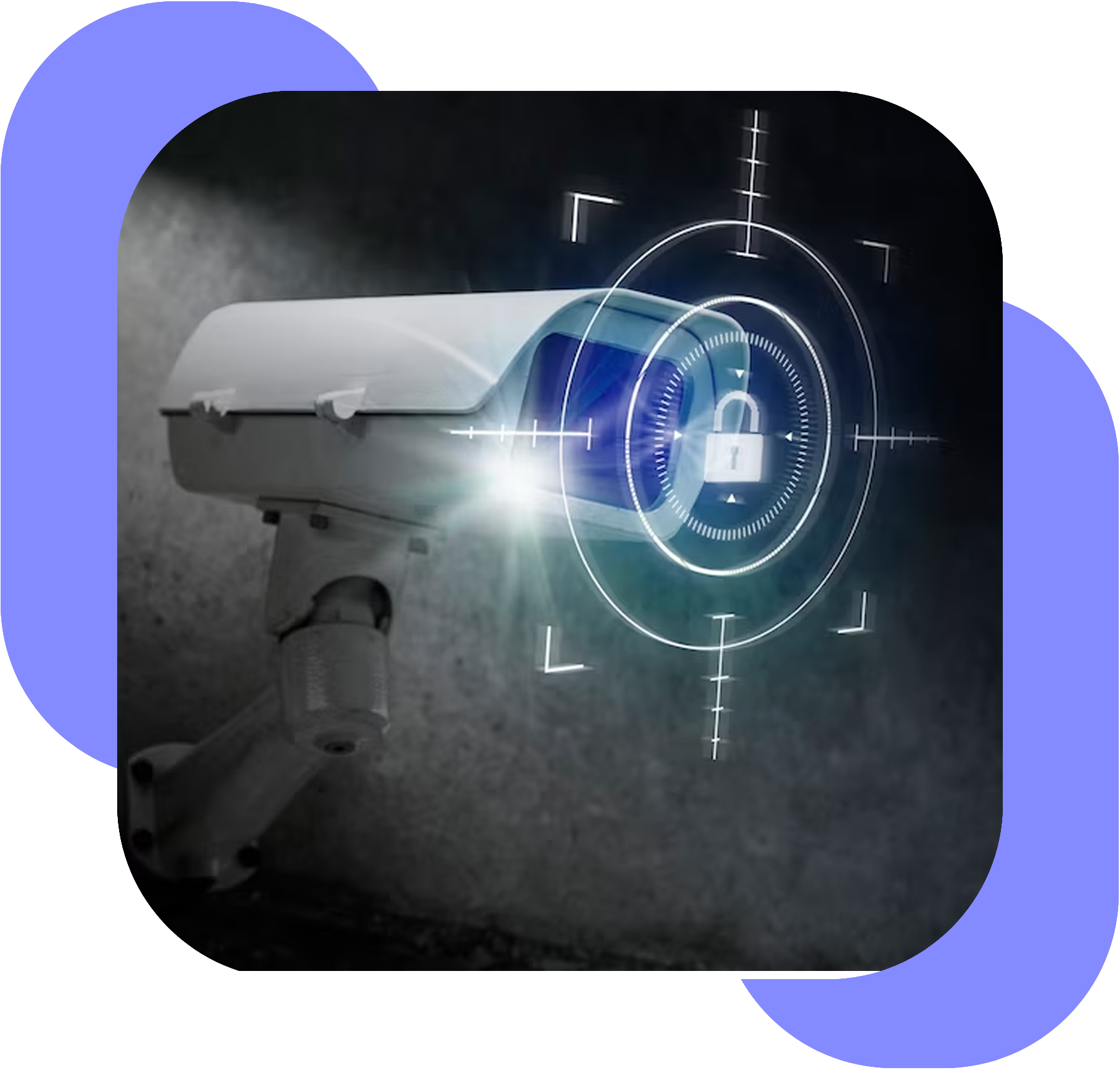In today's digital age, the use of CCTV has become a crucial tool for enhancing safety and security in public spaces. Searching for "buscar kid and mum cctv" reveals the growing concern among parents about the safety of their children and themselves in various environments. CCTV systems have emerged as a powerful solution to address these concerns, providing peace of mind and reducing risks.
The integration of CCTV technology into our daily lives has sparked discussions about its effectiveness and implications. For parents, the ability to monitor their children's safety through CCTV cameras offers a sense of security that was previously unavailable. This article delves into the impact of CCTV on the safety of kids and mothers, exploring its benefits, challenges, and the ethical considerations surrounding its use.
As we navigate the complexities of modern parenting, understanding the role of CCTV in safeguarding our loved ones becomes increasingly important. By examining real-world examples, expert opinions, and statistical data, we aim to provide a comprehensive overview of how CCTV systems contribute to creating safer environments for children and mothers alike.
Read also:Derrick Henry Unveiling The Full Name And Legacy Of A Football Icon
Table of Contents
- Introduction to CCTV and Its Role in Safety
- A Brief History of CCTV Technology
- Benefits of CCTV for Kid and Mum Safety
- Challenges and Limitations of CCTV Systems
- Ethical Considerations in Using CCTV
- Statistical Evidence Supporting CCTV Usage
- Legal Frameworks Governing CCTV Use
- Real-Life Examples of CCTV Success Stories
- The Future of CCTV Technology
- Conclusion and Call to Action
Introduction to CCTV and Its Role in Safety
CCTV systems have evolved significantly over the years, transforming from simple surveillance tools to advanced security solutions. The search term "buscar kid and mum cctv" highlights the increasing awareness among parents about the importance of monitoring their surroundings to ensure the safety of their families. CCTV cameras are now a common sight in schools, parks, and public spaces, offering a layer of protection that was once unimaginable.
The primary function of CCTV is to deter criminal activity and provide evidence in case of incidents. For mothers and children, this means a safer environment where they can move freely without constant fear of danger. CCTV systems are designed to capture real-time footage, allowing for immediate response to any suspicious activities. This proactive approach to security has proven effective in reducing crime rates and enhancing overall safety.
How CCTV Works
CCTV systems operate by using cameras to record video footage, which can be monitored in real-time or reviewed later. Modern CCTV cameras are equipped with features such as night vision, motion detection, and facial recognition, making them highly efficient in identifying potential threats. The footage is stored securely, ensuring that it can be accessed when needed for investigations or evidence purposes.
A Brief History of CCTV Technology
The concept of CCTV dates back to the mid-20th century, with the first systems being developed in the 1940s. Initially used for monitoring rocket launches, CCTV technology has since expanded to include a wide range of applications. Over the years, advancements in technology have led to the development of more sophisticated systems, capable of providing high-definition video and advanced analytics.
In the context of "buscar kid and mum cctv," the evolution of CCTV technology has made it an indispensable tool for ensuring the safety of children and mothers in public spaces. Today's CCTV systems are not only more efficient but also more affordable, making them accessible to a broader audience.
Benefits of CCTV for Kid and Mum Safety
The use of CCTV systems offers numerous benefits for parents concerned about the safety of their children and themselves. Here are some of the key advantages:
Read also:9th June Zodiac Sign Unlock The Mysteries Of Gemini And Sagittarius
- Deterrence of Criminal Activity: The presence of CCTV cameras acts as a deterrent to potential criminals, reducing the likelihood of incidents occurring.
- Real-Time Monitoring: Parents can monitor their children's activities remotely, ensuring they are safe at all times.
- Evidence Collection: In the event of an incident, CCTV footage provides valuable evidence that can be used in investigations.
- Peace of Mind: Knowing that their loved ones are being watched over by CCTV systems gives parents a sense of security and peace of mind.
Case Studies of Successful CCTV Implementations
Several case studies demonstrate the effectiveness of CCTV systems in enhancing safety. For example, a school in the UK implemented CCTV cameras in its playground, resulting in a significant reduction in bullying incidents. Similarly, a shopping mall in Australia used CCTV to identify and apprehend a shoplifter, showcasing the system's ability to provide immediate results.
Challenges and Limitations of CCTV Systems
While CCTV systems offer numerous benefits, they are not without their challenges. Some of the common limitations include:
- Privacy Concerns: The use of CCTV cameras raises questions about privacy, particularly in public spaces where individuals may not expect to be monitored.
- Maintenance Costs: Installing and maintaining CCTV systems can be costly, which may deter some organizations from adopting them.
- False Sense of Security: Relying solely on CCTV systems can lead to a false sense of security, as they are not foolproof and require human intervention to be effective.
Addressing these challenges requires a balanced approach that considers both the benefits and drawbacks of CCTV systems.
Ethical Considerations in Using CCTV
The use of CCTV systems raises important ethical questions about privacy and surveillance. While the primary goal of CCTV is to enhance safety, it is essential to ensure that it does not infringe on individuals' rights. Organizations implementing CCTV systems must adhere to ethical guidelines and legal frameworks to protect the privacy of those being monitored.
In the context of "buscar kid and mum cctv," ethical considerations are particularly relevant, as the focus is on safeguarding vulnerable groups such as children and mothers. Striking a balance between security and privacy is crucial to maintaining public trust in CCTV systems.
Statistical Evidence Supporting CCTV Usage
Research has shown that the use of CCTV systems can significantly reduce crime rates and enhance safety. According to a study conducted by the University of Cambridge, areas with CCTV installations experienced a 41% reduction in crime compared to those without. Similarly, a report by the UK Home Office found that CCTV systems were effective in reducing vehicle crime by up to 51%.
These statistics underscore the importance of CCTV systems in creating safer environments for children and mothers. By providing concrete evidence of their effectiveness, these studies help to reinforce the value of CCTV technology in modern security solutions.
Legal Frameworks Governing CCTV Use
The use of CCTV systems is governed by various legal frameworks designed to protect individuals' rights and ensure ethical practices. In the UK, for example, the Data Protection Act 2018 regulates the use of CCTV footage, requiring organizations to obtain consent and adhere to strict data protection guidelines.
In the context of "buscar kid and mum cctv," understanding these legal frameworks is crucial for parents and organizations alike. By ensuring compliance with relevant laws and regulations, CCTV systems can be implemented responsibly and effectively.
Real-Life Examples of CCTV Success Stories
Several real-life examples demonstrate the effectiveness of CCTV systems in enhancing safety. In one instance, a mother in New York used CCTV footage to identify a person who had attempted to abduct her child from a playground. The footage provided clear evidence that led to the perpetrator's arrest and conviction.
Another example comes from a school in Australia, where CCTV cameras were instrumental in identifying and apprehending a group of teenagers who had vandalized school property. These success stories highlight the critical role that CCTV systems play in ensuring the safety of children and mothers.
The Future of CCTV Technology
As technology continues to evolve, the future of CCTV systems looks promising. Advances in artificial intelligence and machine learning are expected to enhance the capabilities of CCTV cameras, making them even more effective in detecting and preventing crime. Features such as facial recognition and behavior analysis will enable CCTV systems to identify potential threats before they occur, providing an added layer of security.
In the context of "buscar kid and mum cctv," these advancements offer hope for a safer future, where parents can trust that their children and themselves are protected by cutting-edge technology.
Conclusion and Call to Action
In conclusion, the use of CCTV systems has proven to be an effective solution for enhancing the safety of children and mothers. By addressing the challenges and ethical considerations associated with CCTV technology, we can ensure that it is implemented responsibly and effectively. The statistical evidence and real-life examples presented in this article demonstrate the significant impact that CCTV systems have on reducing crime and enhancing security.
We encourage readers to share their thoughts and experiences with CCTV systems in the comments section below. Additionally, we invite you to explore other articles on our site that delve deeper into the world of security technology. Together, we can work towards creating safer environments for everyone.


